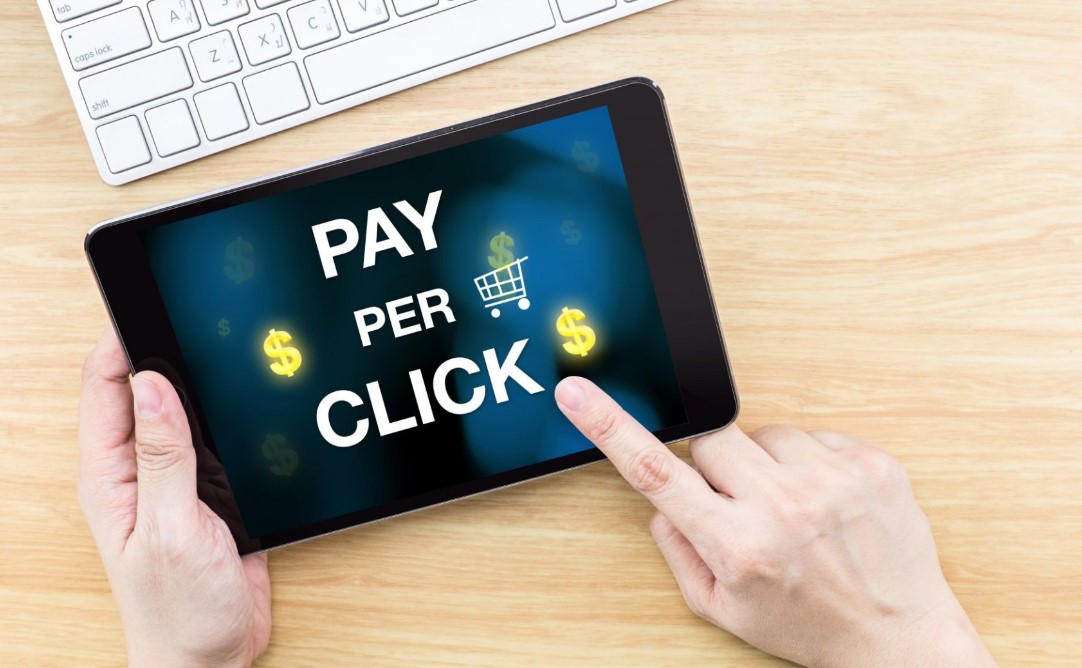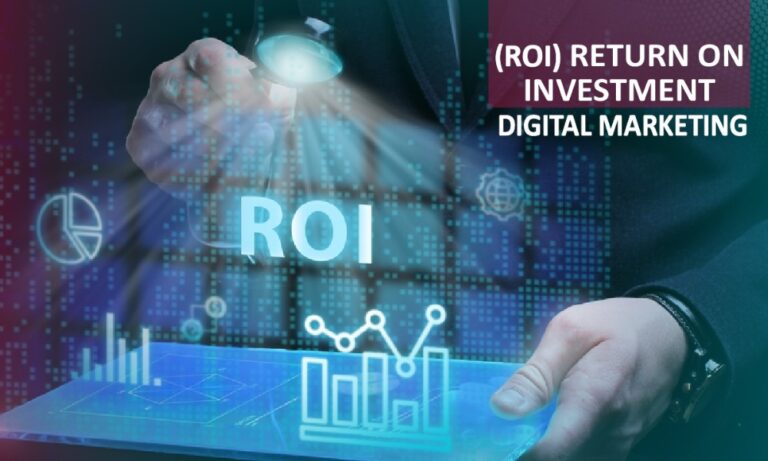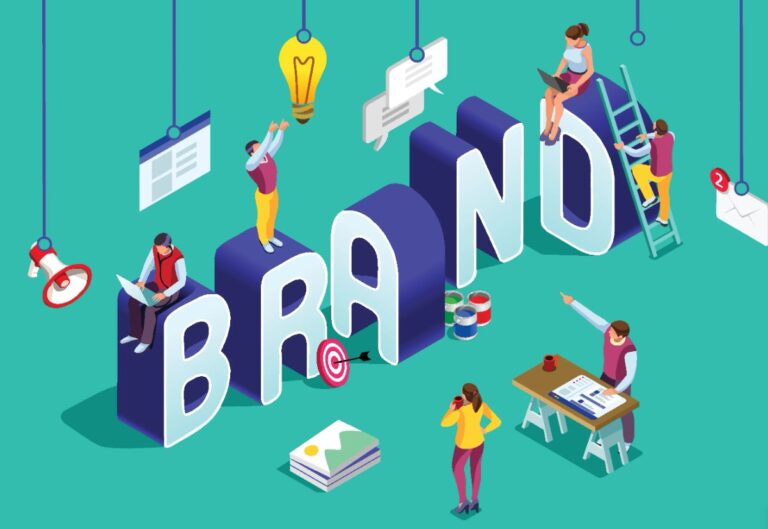The Best Marketing Channels for Small Businesses in 2024
In 2024, small businesses need to focus on marketing strategies that offer the highest return on investment (ROI) and leverage the latest technology to reach their target audiences. The future of marketing is increasingly digital, with more emphasis on data-driven decisions, personalized content, and omni-channel engagement. Selecting the right marketing channels can make or break a small business’s ability to compete in an increasingly saturated market.
Whether you’re just starting out or looking to optimize your existing strategies, understanding the most effective marketing channels is key to growing your business. Below, we’ll explore the top marketing channels for small businesses in 2024, provide real-world examples of products that can help, and explain how to use each channel to your advantage.
Social Media Marketing

Social media marketing is a powerful and cost-effective tool that allows small businesses to reach, engage, and convert customers on various social media platforms. In 2024, it continues to be one of the most essential marketing channels for businesses, especially those looking to increase brand awareness, connect directly with their target audience, and drive traffic to their websites.
By leveraging platforms such as Facebook, Instagram, LinkedIn, Twitter, and TikTok, small businesses can create personalized, targeted campaigns that resonate with their audience. Whether you’re sharing content, running ads, or engaging with followers, social media offers numerous ways to grow your business without requiring a massive marketing budget.
Why Social Media Marketing is Crucial for Small Businesses
Social media marketing is critical because it provides businesses with direct access to potential customers in a way that traditional marketing channels do not. Unlike conventional advertising, social media allows businesses to interact with their audience in real-time, respond to customer inquiries, and build long-term relationships through consistent engagement.
One of the most significant advantages of social media is the ability to reach a large audience at a fraction of the cost of traditional advertising. For small businesses, this is a game-changer, as they can achieve significant brand exposure without needing a large marketing budget. Through organic posts, paid ads, influencer collaborations, and social media partnerships, businesses can promote their products or services to the right audience.
Social media platforms also provide highly targeted advertising options. Businesses can use demographic filters, location settings, interests, and behaviors to ensure their ads are being shown to the most relevant audience. This level of targeting reduces ad spend waste and increases the likelihood of conversions. Platforms like Facebook Ads and Instagram Ads make it easy to design campaigns that resonate with a particular group of people.
Another important aspect of social media marketing is data. Most social media platforms provide businesses with comprehensive insights into how their content is performing. Metrics such as engagement rates, follower growth, click-through rates (CTR), and conversions can help businesses understand what resonates with their audience and adjust their strategy accordingly. Tools like Buffer and Hootsuite offer additional analytics that provide deeper insights into campaign performance.
Real-World Product Examples for Social Media Management
- Buffer (Social Media Management Tool)
Buffer is a popular social media management platform that allows small businesses to schedule posts, analyze performance, and engage with their audience across multiple platforms from a single dashboard. It’s ideal for businesses that want to streamline their social media efforts and stay consistent with their posting schedule.- Features:
- Post scheduling for Facebook, Instagram, LinkedIn, and Twitter
- Performance analytics and reporting
- Social media engagement tools
- Pros:
- User-friendly interface
- Free version available
- Suitable for managing multiple accounts
- Cons:
- Limited features in the free version
- Higher-tier plans can be expensive for small businesses
- Price: Free for basic use; premium plans start at $15 per month.
- Where to Buy: Buffer Official Website
- Features:
- Hootsuite (Social Media Management Tool)
Hootsuite is another comprehensive social media management tool designed to help businesses plan, execute, and monitor their social media campaigns. It allows users to manage multiple social media accounts in one place and offers detailed analytics.- Features:
- Schedule posts across all major platforms
- Monitor engagement and interactions in real-time
- Advanced analytics to track performance
- Pros:
- Comprehensive features for larger businesses
- Excellent customer support
- Integrates with multiple social media platforms
- Cons:
- Can be expensive for smaller businesses
- Interface can be overwhelming for new users
- Price: Free for basic use; premium plans start at $19 per month.
- Where to Buy: Hootsuite Official Website
- Features:
- Later (Instagram Scheduling Tool)
- Later is a social media scheduling tool specifically designed for Instagram. It allows users to plan and schedule Instagram posts, Stories, and Reels in advance, making it easier to maintain a consistent posting schedule.
- Features:
- Visual content calendar for easy planning
- Instagram Stories and Reels scheduling
- Analytics for post performance
- Pros:
- Great for visual content planning
- Affordable pricing for small businesses
- Easy-to-use drag-and-drop interface
- Cons:
- Limited to Instagram primarily
- Fewer features compared to Buffer or Hootsuite for multi-platform management
- Price: Free for basic use; premium plans start at $12.50 per month.
- Where to Buy: Later Official Website
- Features:
Email Marketing

Email marketing continues to deliver one of the highest ROIs among digital marketing channels, making it a crucial tool for small businesses. With email campaigns, businesses can nurture customer relationships, promote products, and generate sales through personalized messages directly delivered to their audience’s inbox.
Mailchimp (or similar email marketing tool)
Mailchimp is a leading email marketing platform designed for businesses of all sizes. It provides everything a small business needs to create, send, and analyze email marketing campaigns that drive customer engagement and sales.
Features:
- Customizable email templates
- Automated email sequences
- Analytics to track campaign performance
Pros:
- Intuitive interface
- Free plan for small email lists
- Wide range of email automation features
Cons:
- Premium plans can become expensive for larger lists
- Some advanced features require higher-tier plans
Price: Free for up to 500 subscribers; premium plans start at $10 per month.
Where to Buy: Mailchimp Official Website
Email marketing is particularly beneficial because it allows businesses to deliver targeted, personalized messages to their audience, building long-term relationships and driving conversions. Mailchimp’s automation features make it easy to send personalized product recommendations, newsletters, and promotions based on customer behavior.
Content Marketing

Content marketing involves creating valuable, relevant content that attracts and engages your target audience. This channel includes blog posts, videos, infographics, and more, and it’s designed to establish authority, build trust, and drive traffic to your website over time. For small businesses, content marketing can be a cost-effective way to generate organic traffic and leads.
WordPress (or similar content management system)
WordPress is one of the most popular content management systems (CMS) used by small businesses to create blogs, landing pages, and websites. It offers flexibility, customization, and powerful SEO tools, making it ideal for content marketing.
Features:
- Easy-to-use website builder
- SEO plugins like Yoast for optimizing content
- Integrates with various marketing tools
Pros:
- Free and open-source
- Wide range of customizable themes and plugins
- Strong community support
Cons:
- Requires some technical knowledge for advanced customization
- Plugins may need regular updates and maintenance
Price: Free for basic use; premium themes and plugins may have additional costs.
Where to Buy: WordPress Official Website
The benefits of content marketing for small businesses include improved SEO rankings, increased brand authority, and the ability to drive long-term traffic through organic search. WordPress, combined with SEO tools and content strategies, helps businesses create content that ranks well in search engines, bringing in targeted visitors.
Pay-Per-Click (PPC) Advertising

Pay-Per-Click (PPC) advertising is an essential marketing channel for small businesses looking for immediate results. Unlike organic content, which can take time to rank, PPC ads allow businesses to appear at the top of search engine results or on social media platforms instantly, ensuring high visibility. Popular PPC platforms include Google Ads and Facebook Ads.
Google Ads (or similar PPC platform)
Google Ads is a powerful PPC advertising platform that allows businesses to bid on keywords and display their ads to relevant users. It is a highly effective way to drive traffic, generate leads, and boost conversions for small businesses.
Features:
- Keyword targeting and bidding
- Ad placement on search results and partner websites
- Detailed analytics and performance tracking
Pros:
- High visibility on Google search results
- Flexible budgets and targeting options
- Real-time performance insights
Cons:
- Can be expensive for highly competitive keywords
- Requires ongoing optimization for best results
Price: Varies depending on the ad budget; pay per click.
Where to Buy: Google Ads Official Website
PPC advertising offers the benefit of fast results, as ads can start generating traffic as soon as they are launched. Google Ads also allows small businesses to set specific budgets, ensuring that even with limited resources, they can achieve targeted results by focusing on relevant keywords.
Search Engine Optimization (SEO)

Search Engine Optimization (SEO) is a critical marketing strategy for businesses, particularly small businesses, that want to increase their online visibility and drive organic traffic to their websites. SEO involves optimizing a website and its content to rank higher in search engine results pages (SERPs) like Google, Bing, and Yahoo. The higher a website ranks for relevant keywords, the more likely it is to attract clicks, leading to potential leads and sales.
In 2024, SEO remains a key component of digital marketing strategies because it allows businesses to reach users who are actively searching for information, products, or services. Unlike paid advertising, SEO offers long-term benefits as well as sustained visibility without the need for continuous ad spend. However, SEO is a multifaceted process that involves both technical and content-related optimization strategies, making it a complex but essential practice.
Why SEO is Essential for Small Businesses
For small businesses, SEO is an affordable and sustainable way to compete with larger companies. While paid advertising like Pay-Per-Click (PPC) campaigns offer immediate visibility, SEO helps build long-term credibility and authority online. Small businesses that invest in SEO can rank on the first page of search engine results for key terms relevant to their business, thereby attracting potential customers who are already looking for what they offer.
SEO also provides one of the highest returns on investment (ROI) among digital marketing strategies. Once a website is optimized and starts ranking for important keywords, the organic traffic generated can continue for months or even years without additional spending, unlike paid ads, which stop generating traffic as soon as the budget runs out. This makes SEO a cost-effective option for small businesses with limited marketing budgets.
Moreover, SEO plays a vital role in local marketing. Local SEO strategies help small businesses appear in location-specific search queries, such as “coffee shops near me” or “best plumbers in Denver.” By optimizing their Google My Business listings and creating localized content, businesses can attract customers from their local community, driving foot traffic to brick-and-mortar stores or boosting online sales for location-specific services.
SEO Tools for Small Businesses
To make the most of SEO, small businesses need access to the right tools that can help them conduct keyword research, track performance, and optimize their content. Here are some essential SEO tools:
- Yoast SEO: Yoast is a popular SEO plugin for WordPress websites. It helps businesses optimize their on-page SEO by providing recommendations for improving content, meta descriptions, and readability.gs over time.
- SEMrush: SEMrush is an all-in-one SEO tool that offers keyword research, site audits, competitor analysis, and backlink tracking. It’s ideal for businesses that want comprehensive SEO insights to improve their rankings.
- Ahrefs: Ahrefs is another powerful SEO tool focused on backlink analysis, keyword research, and site audits. It’s particularly useful for businesses looking to improve their off-page SEO efforts through link building.
- Google Search Console: This free tool from Google helps businesses monitor their website’s presence in Google search results. It provides insights into keyword rankings, click-through rates, and any technical issues that may affect SEO performance.
Real-World Examples of Marketing Channels
- Buffer for Social Media Management
Buffer helps small businesses manage multiple social media platforms efficiently. With features that allow for scheduled posts and performance tracking, Buffer is ideal for businesses looking to build a consistent social media presence. - Mailchimp for Email Marketing
Mailchimp’s easy-to-use interface and automation features help businesses create and manage email marketing campaigns that drive conversions. It’s one of the most affordable and efficient ways to engage with customers and promote products. - WordPress for Content Marketing
WordPress provides a customizable platform for creating blogs, landing pages, and full websites. Paired with strong SEO plugins, WordPress helps businesses generate organic traffic over time. - Google Ads for PPC Campaigns
Google Ads is the go-to platform for businesses looking to achieve instant visibility through search engine marketing. Small businesses can use keyword targeting to drive qualified leads to their websites. - SEMrush for SEO Optimization
SEMrush provides a comprehensive suite of tools that help businesses improve their SEO efforts, drive organic traffic, and monitor competitors’ strategies.
FAQ
1. What is the most effective marketing channel for small businesses?
The most effective marketing channel depends on your goals and budget. Social media and email marketing often provide high returns, while SEO is crucial for long-term growth.
2. How can I track the performance of my marketing campaigns?
You can track your marketing performance using tools like Google Analytics, SEMrush, or specific platform analytics like Buffer for social media and Mailchimp for email campaigns.
3. Is PPC advertising worth it for small businesses?
Yes, PPC advertising can be highly effective for small businesses looking to gain quick visibility and drive traffic, especially when using a well-targeted campaign on platforms like Google Ads.
In conclusion, selecting the right marketing channels for your small business in 2024 can significantly impact your ability to grow and thrive. Whether it’s through social media, email marketing, SEO, content marketing, or PPC advertising, using the right tools and strategies will help you maximize your ROI and achieve long-term success.






